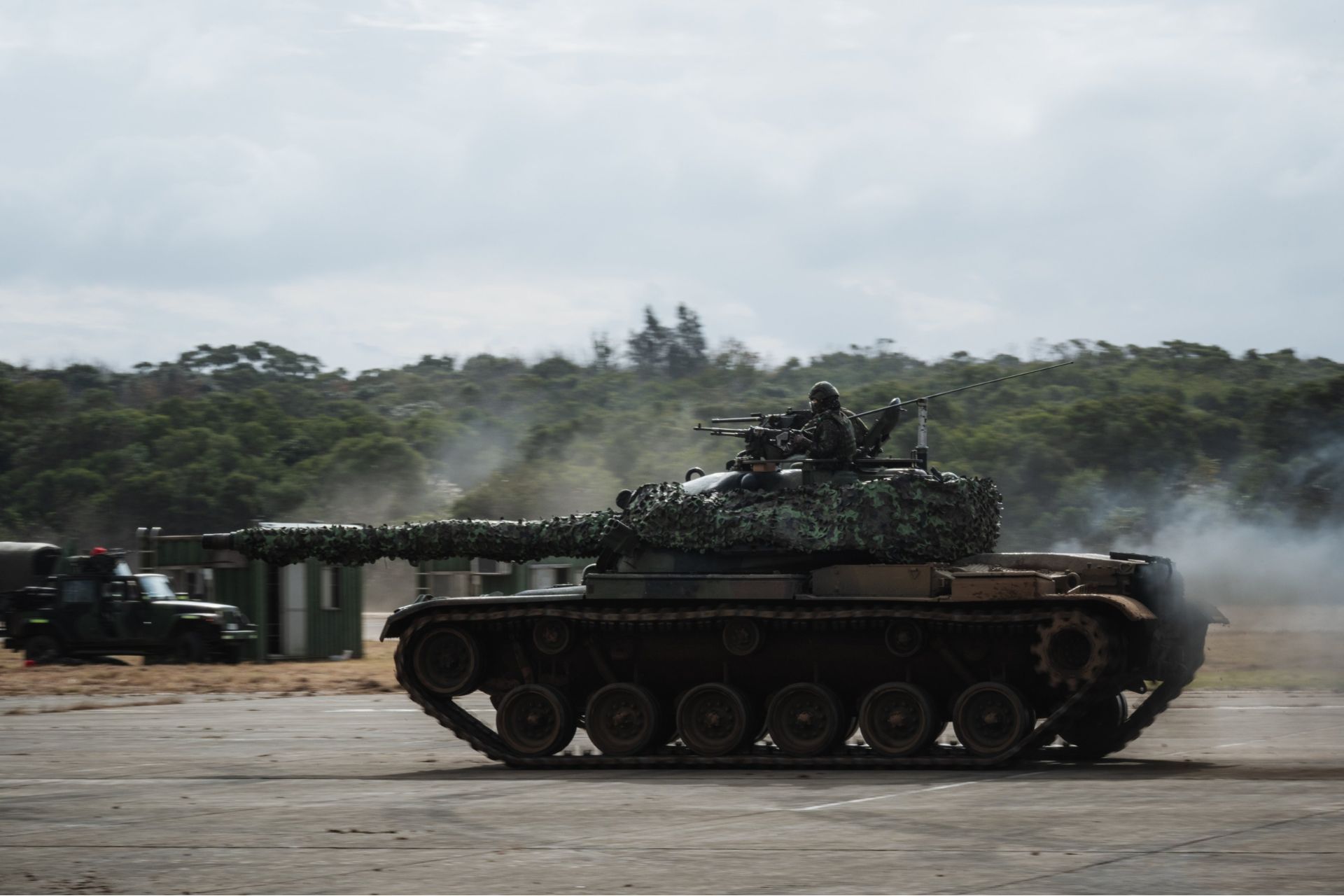Breaking News
Taiwan Conducts Military Drills Amid Concerns Over Defense Budget Cuts.
Amid growing concerns about a potential reduction in the defense budget, Taiwan began three days of military drills on Tuesday. These exercises aim to showcase the island's ability to respond to increasing threats from China while addressing public concerns. The situation is particularly sensitive due to proposed legislative amendments that could significantly reduce defense spending.

The drills commenced in the northern city of Hsinchu, featuring tank maneuvers involving CM-11 tanks, which are being gradually replaced by newly acquired Abrams M1A2T tanks from the United States (Picture source: MoNDefense Taiwan)
The drills commenced in the northern city of Hsinchu, featuring tank maneuvers involving CM-11 tanks, which are being gradually replaced by newly acquired Abrams M1A2T tanks from the United States. While these upgrades represent a technological improvement, some concerns have been raised regarding the weight of the new tanks and their effectiveness in preventing a potential Chinese amphibious landing. Troops arrived in armored personnel carriers, supported by Apache and S-70 helicopters providing reconnaissance and covering fire.
Army Captain Chuang Yuan-cheng, of the 542nd Armored Brigade, explained that current capabilities allow a communication officer to coordinate aerial attacks from the ground. This ensures synchronization between ground and airborne firepower, reflecting efforts to enhance the interoperability of Taiwan's forces.
The drills will continue on Wednesday with a demonstration of the Patriot III missile defense system, designed to counter Chinese ballistic missile threats. They will conclude on Thursday with anti-submarine exercises near Kaohsiung, Taiwan's largest port. This strategically important area is considered a potential target for Chinese forces seeking to establish a supply foothold in the event of a conflict.
Held annually ahead of the Lunar New Year, these exercises aim to reassure the Taiwanese public about the military's defensive capabilities while also supporting recruitment efforts. Concurrently, Taiwan is pursuing an ambitious military modernization program, including pending U.S. arms orders worth approximately $20 billion, upgrades to its F-16 fighter jets, and the development of domestically-produced submarines. Additionally, mandatory military service has recently been extended to one year to bolster troop numbers.
However, a legislative proposal from the main opposition party, the Kuomintang, in cooperation with the Taiwan People's Party, threatens to reduce the defense budget by 28%. By altering the distribution of funds between the central and local governments, this measure could undermine Taiwan's ability to sustain its defense efforts. National Security Council Secretary-General Joseph Wu has warned that such reductions might also weaken the willingness of allies like the United States, Japan, and the Philippines to assist Taiwan in the event of a conflict with China.
Currently, Taiwan allocates approximately 2.4% of its GDP—around $20 billion—annually to defense spending. This investment regularly draws criticism from Beijing, which views U.S. arms sales to Taiwan as provocative. Although China has issued repeated warnings, calling these sales a "dangerous game," its responses have so far been limited to targeted economic sanctions on involved companies and frequent military displays near Taiwan. Despite this pressure, most Taiwanese continue to support the current state of de facto independence.
In conclusion, these military drills take place in a context of rising internal and external tensions. While Taiwan strengthens its defensive capabilities to counter potential threats from China, uncertainties surrounding defense funding raise questions about the sustainability of its military posture in the long term.


























